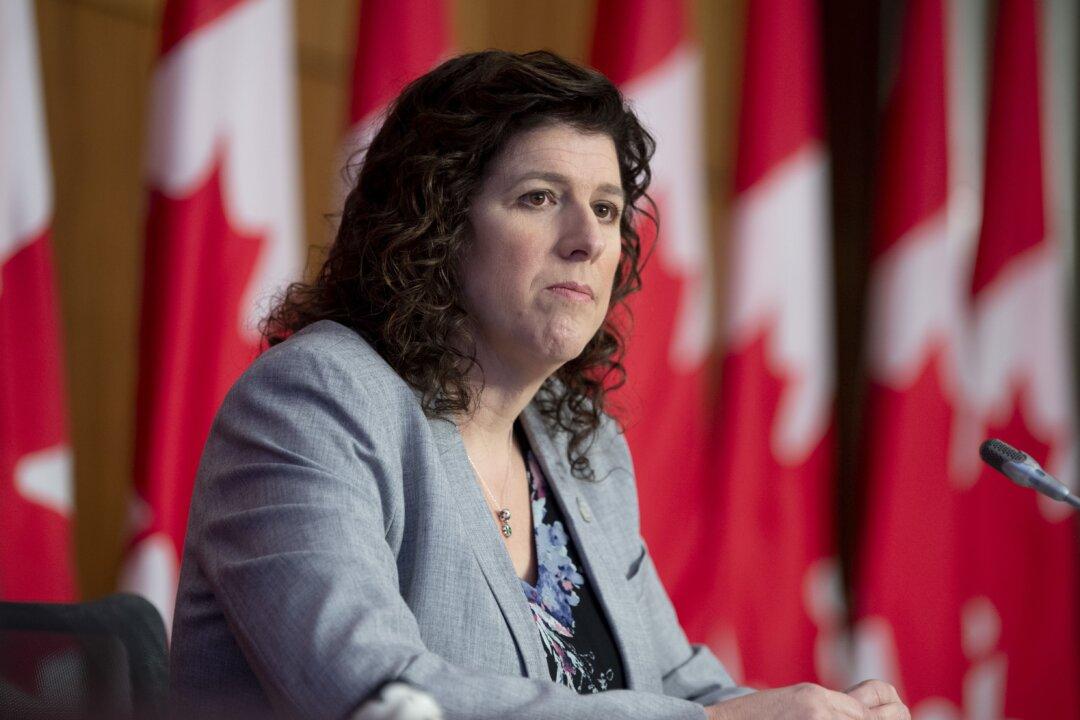Auditor General Karen Hogan says $4.6 billion of the federal government’s previous COVID-19 relief payments were collected by recipients who didn’t meet the eligibility criteria, and at least another $27.4 billion went to individuals whose eligibility status still requires confirmation.
Hogan’s office wrote in a performance audit tabled in the House of Commons on Dec. 6 that the issue came about from the federal government’s decision to prioritize sending the payments out quickly rather than first vetting applicants to ensure they met the eligibility criteria.





